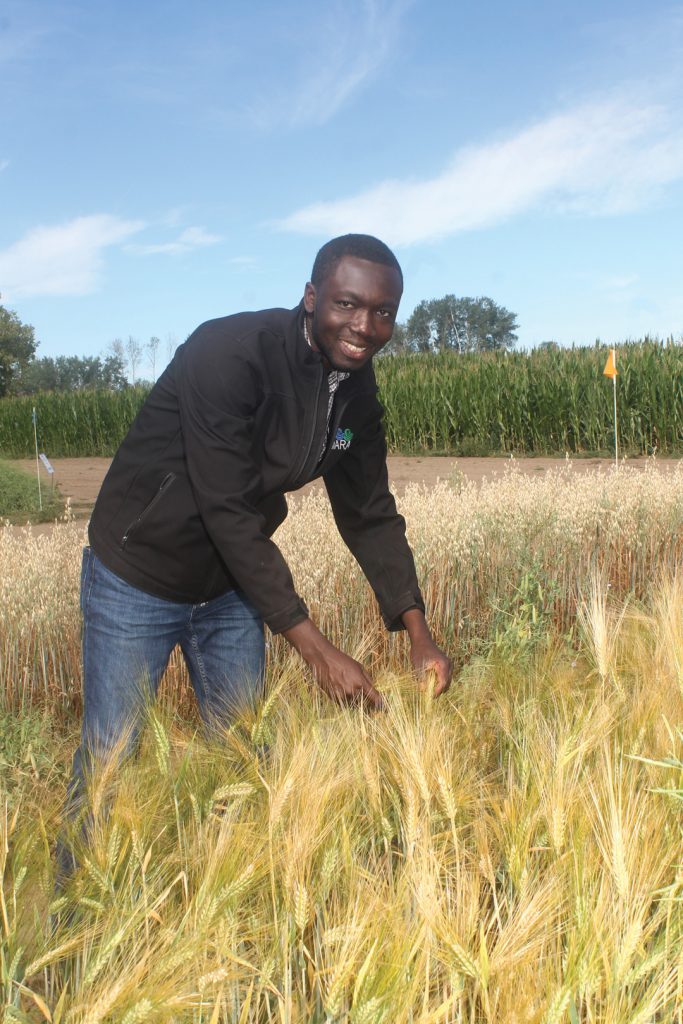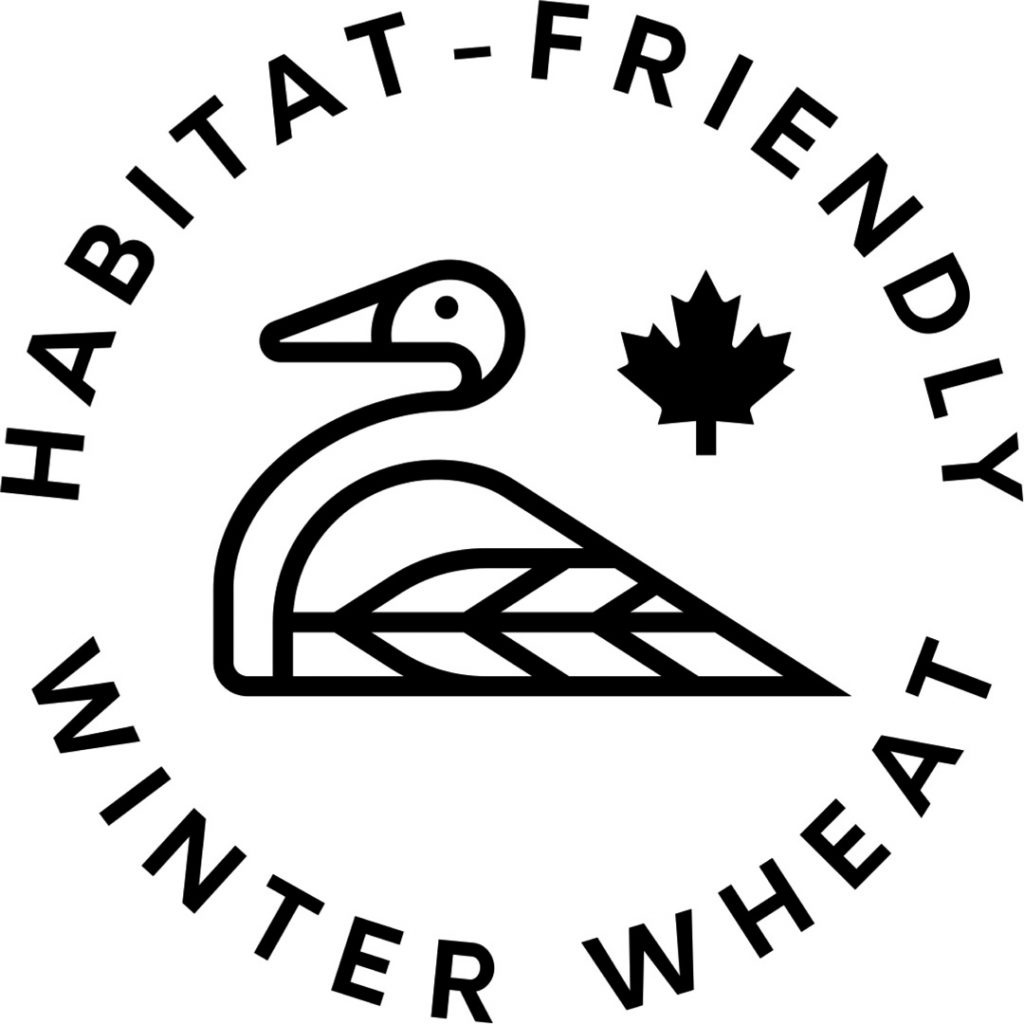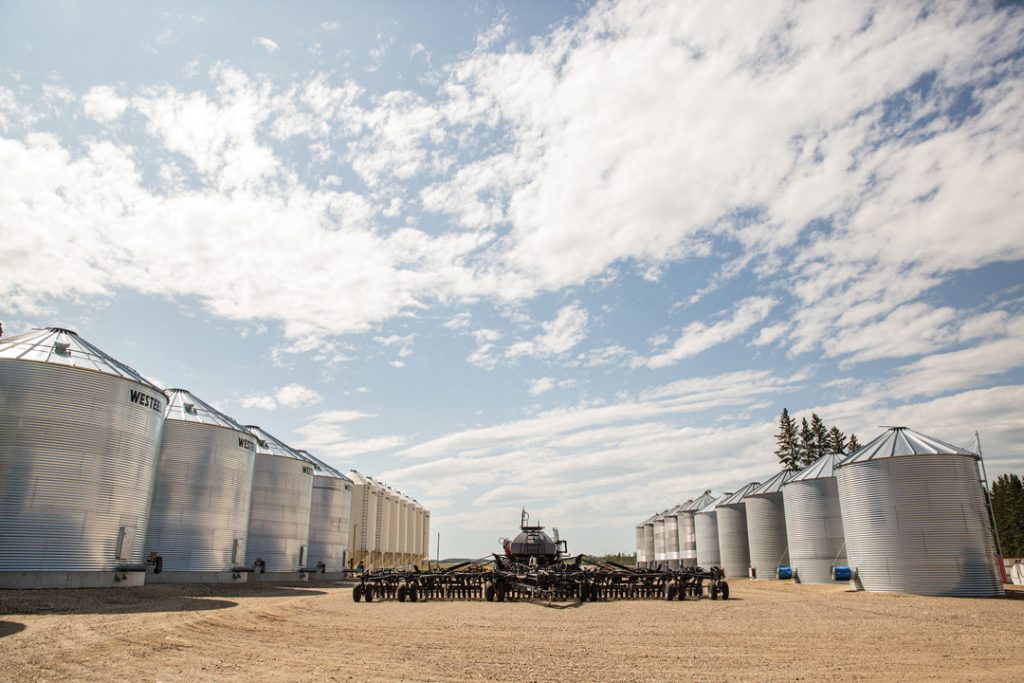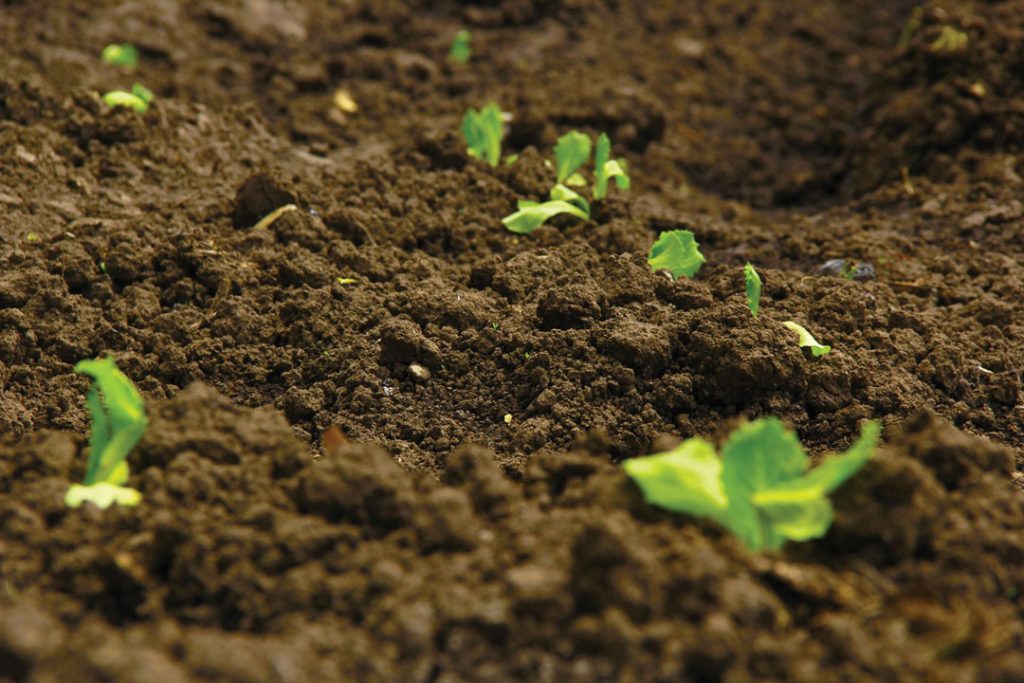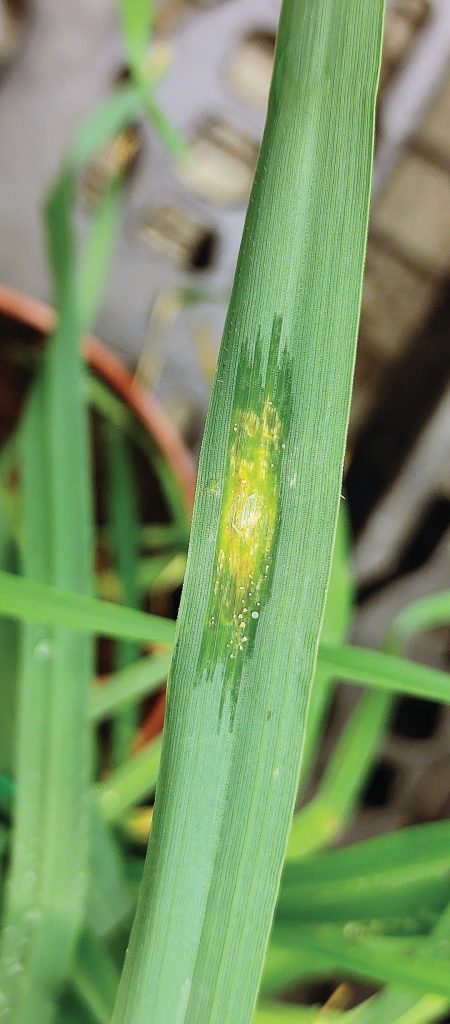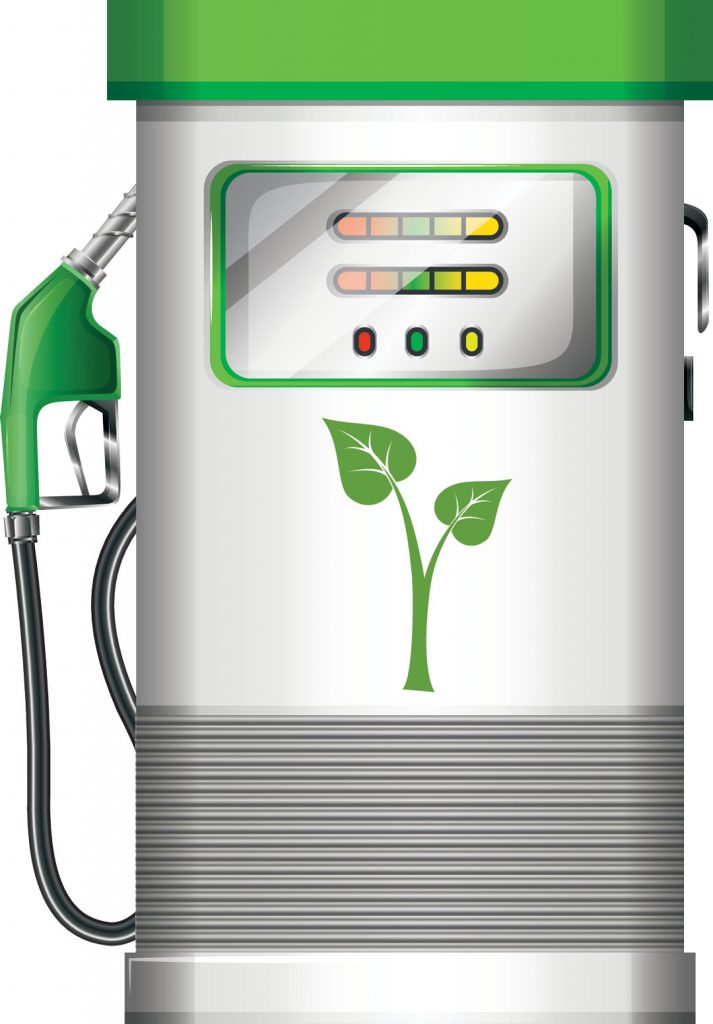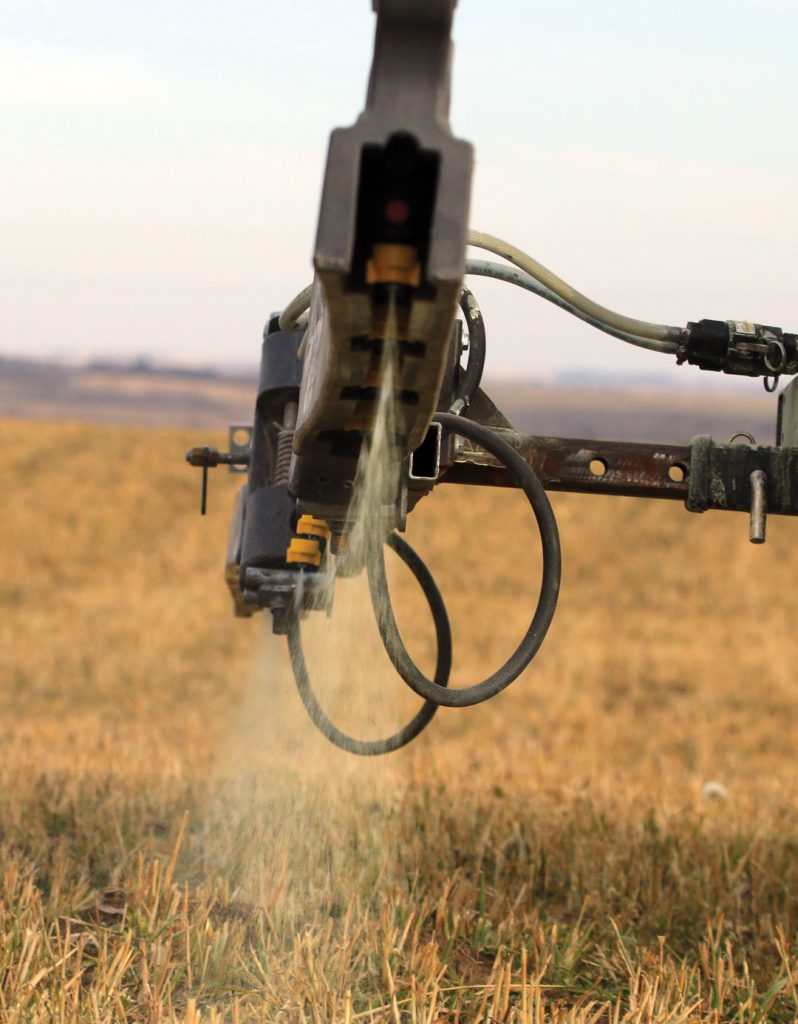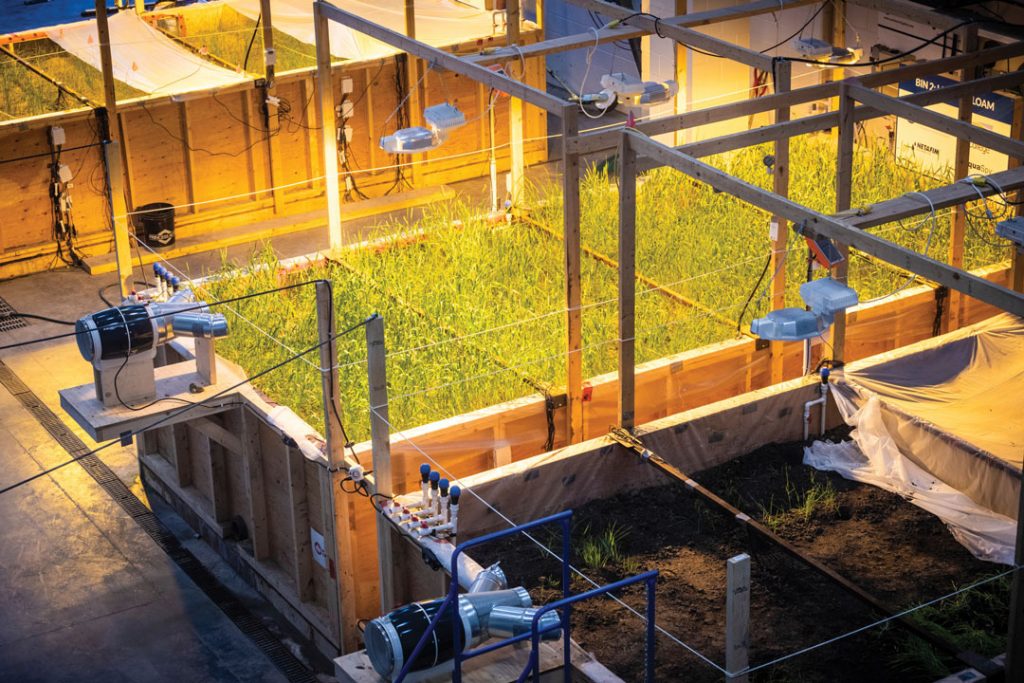NORTHERN FARMERS EMBRACE DATA-DRIVEN SCIENCE
Agricultural research facilities are critical to the forward momentum of Peace Country farming. Established in 1917, the Beaverlodge Research Farm is the most northerly Agriculture and Agri-Food Canada research centre. The wide scope of its programming reflects the sheer size of the region. This encompasses research on forage production and integrated crop management as well as disease and pest management and honey bee pathology.




